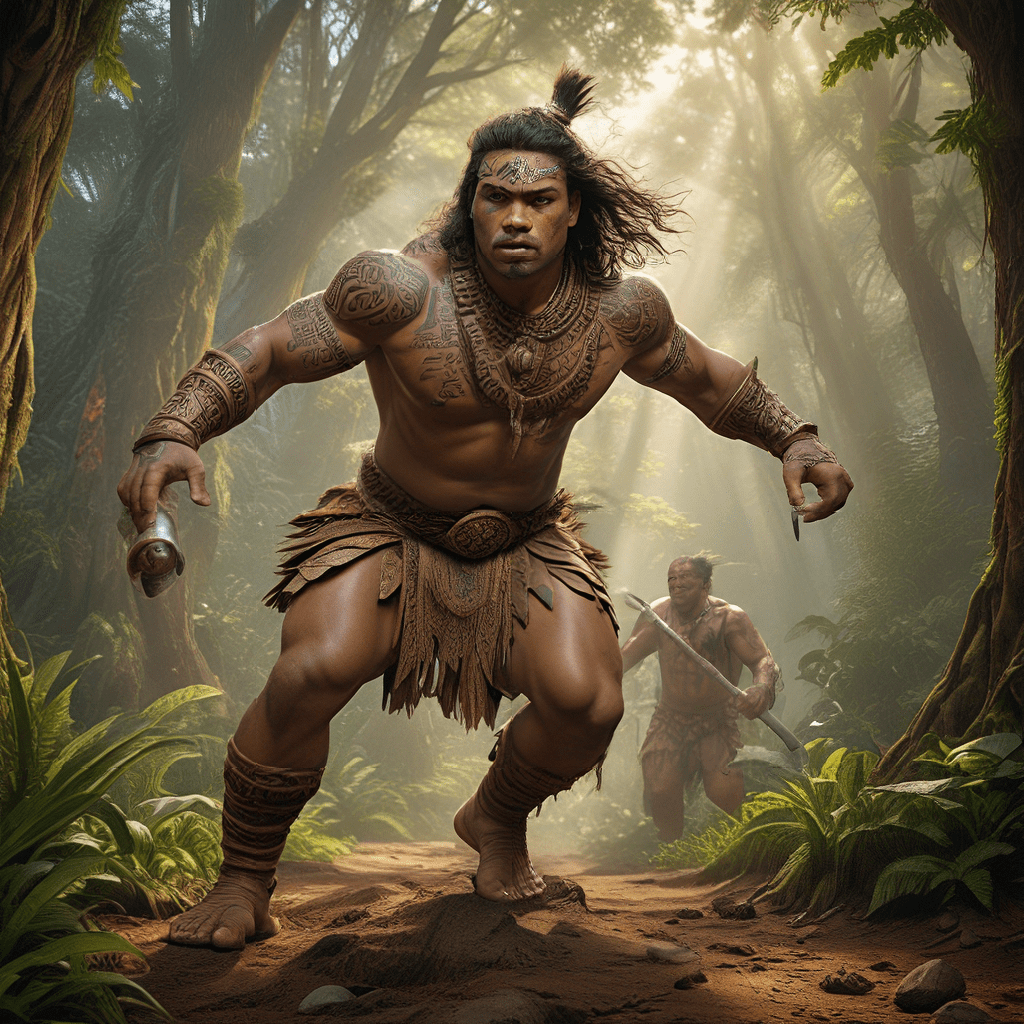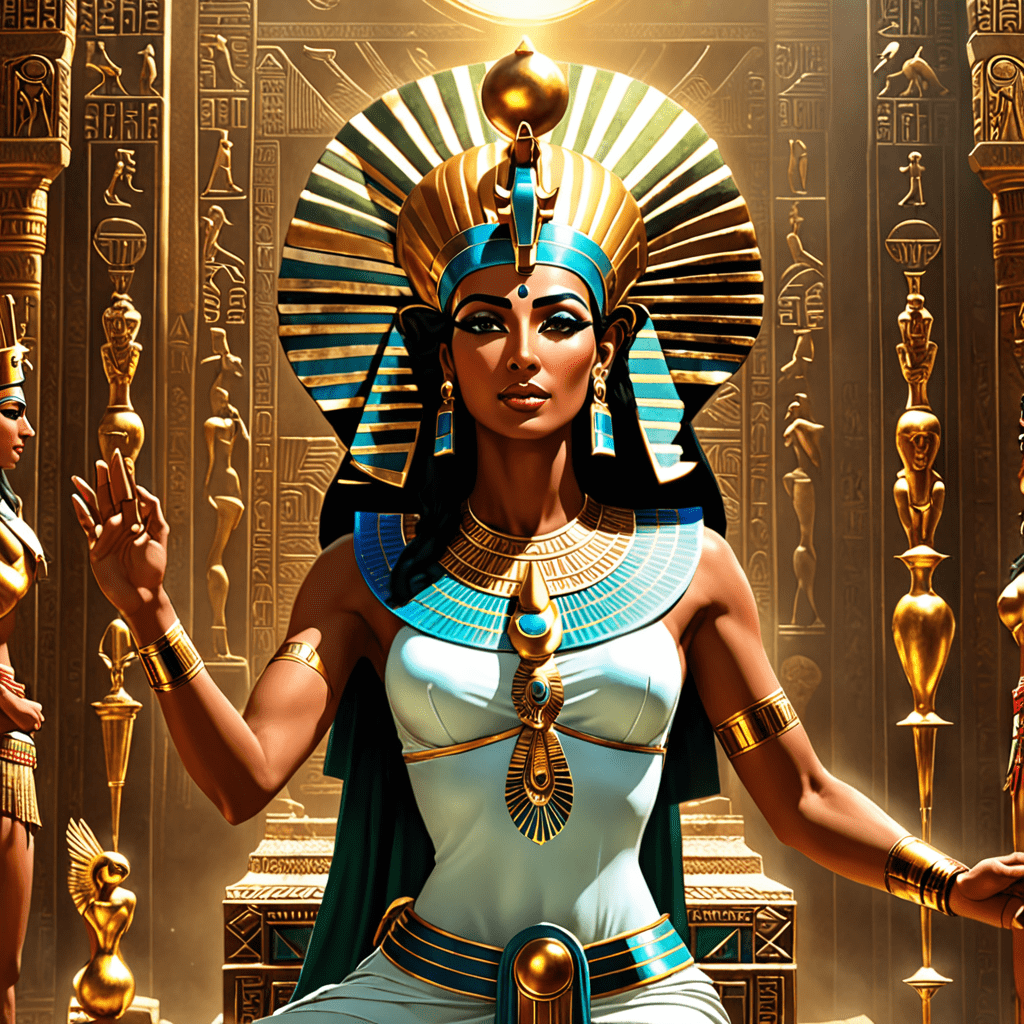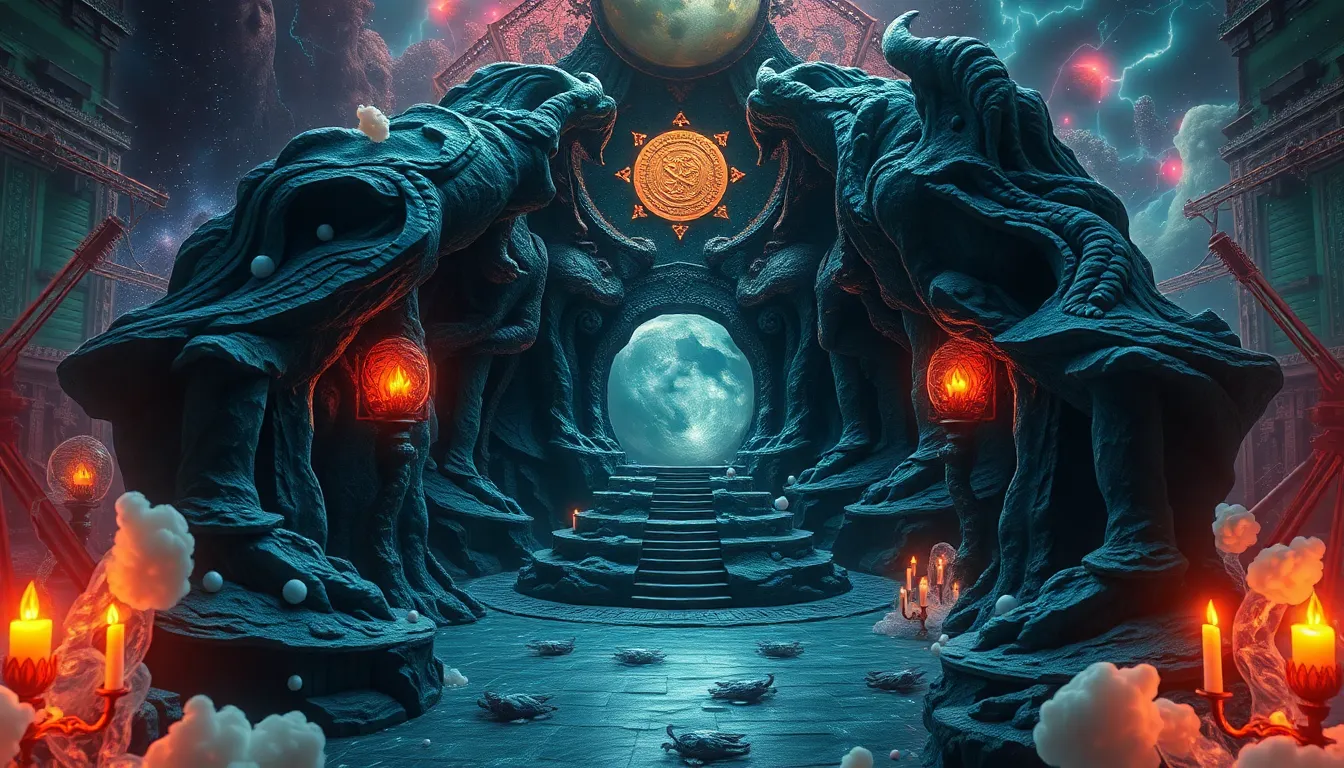The Tapestry of Maori Mythology: A World of Gods, Heroes and Adventures
Maori mythology, a vibrant tapestry woven with tales of gods, heroes, and epic adventures, offers a glimpse into the ancient beliefs and values of the Māori people of New Zealand. These stories, passed down through generations by word of mouth, are not mere fairy tales. They are the foundation of Maori culture, shaping their understanding of the world, their connection to nature, and their sense of identity.
Within this rich tapestry, we encounter a pantheon of deities, each with their own powers and domains. There's Tāne, the god of forests, who brought life to the earth, and Rongo, the god of peace and agriculture, who ensured bountiful harvests. We also meet the mischievous trickster god Maui, who, with his courage and cunning, reshaped the world for the benefit of humankind.
These stories, often featuring dramatic confrontations with supernatural beings and tests of physical and mental strength, serve as a powerful reflection of the Maori worldview, emphasizing the importance of courage, resilience, and resourcefulness in the face of challenges.
The Significance of Myths in Maori Culture: Oral Tradition and Cultural Identity
Maori myths are not just entertaining tales; they are vital threads in the fabric of Maori culture, holding immense significance in shaping their identity, beliefs, and values. These stories, passed down through generations through the art of oral tradition, serve as a powerful repository of knowledge, wisdom, and cultural heritage.
Every myth holds within it a deeper meaning, offering insights into the Maori understanding of creation, the natural world, and the human condition. They teach about respect for the environment, the interconnectedness of all things, and the importance of community. These stories also act as a means of social control, reinforcing moral codes and societal norms.
For example, the myth of Maui, who fished up the North Island of New Zealand, reflects the Maori belief in the power of resourcefulness and ingenuity. Similarly, the story of Tāwhirimatea, the god of winds, highlights the importance of understanding and respecting the forces of nature. The stories of ancestors and mythical heroes provide a sense of belonging, lineage, and shared heritage, fostering a strong sense of community and identity among the Maori people.
The Archetypal Hero’s Journey: A Framework for Understanding Maori Myths
Many Maori myths follow a classic narrative structure known as the hero's journey, a pattern found in stories across cultures and time. This archetypal journey begins with the hero's ordinary world, often facing a call to adventure. The hero embarks on a journey, encountering challenges and tests, often with the help of mentors or allies. The climax involves a decisive confrontation with an antagonist, followed by a triumphant return to their world, transformed by their experiences.
This framework allows us to understand the motivations, goals, and challenges faced by Maori heroes, providing a deeper understanding of the themes and messages embedded in their stories. The hero's journey serves as a metaphor for the human experience, reflecting our own quests for self-discovery, our struggles against adversity, and our ultimate triumph over obstacles.
Maui: The Trickster God and His Transformative Voyages
Maui, a prominent figure in Maori mythology, is a complex and fascinating character. He is often portrayed as a trickster god, known for his mischievous nature and cunning intellect. Yet, he is also a powerful figure, responsible for shaping the world in ways that benefit humankind.
Maui's journeys are filled with both playful trickery and heroic feats. He is credited with slowing down the sun to lengthen the day, catching a giant fish that became the North Island, and bringing fire to the world for humans.
In his daring exploits, Maui embodies the spirit of adventure and the determination to overcome any challenge. He is a symbol of courage, resourcefulness, and ingenuity, qualities that are valued by the Maori people. Through his actions, he demonstrates the power of human potential to reshape the world, highlighting the importance of resourcefulness and perseverance in the face of adversity.
Tāwhirimatea: The God of Winds and the Origin of the World
Tāwhirimatea, the god of winds, holds a prominent place in Maori mythology. He is often associated with the creation of the world, as well as the destructive power of storms and natural disasters. In one myth, Tāwhirimatea, angered by the disrespect shown to him by his siblings, unleashed a tempest that separated the land and sky.
Tāwhirimatea is a complex and powerful deity, representing the unpredictable forces of nature. He serves as a reminder of the interconnectedness of the world and the importance of respecting the natural order. His story highlights the destructive potential of nature's wrath as well as the importance of balance and harmony in the natural world.
The Journey of Kupe: Exploring New Lands and Establishing Maori Identity
Kupe, a renowned figure in Maori mythology, is celebrated as the first Polynesian explorer to reach the shores of Aotearoa (New Zealand). His journey, a testament to the daring spirit and navigational prowess of the Maori people, holds immense significance in shaping their cultural identity.
Kupe's voyage, propelled by a deep sense of adventure and a thirst for new knowledge, marked a pivotal moment in Maori history. He set sail from Hawaiki, a mythical Polynesian homeland, accompanied by his wife, Hine-te-iwaiwa, and a crew of skilled navigators. Using the stars, currents, and natural landmarks, they braved the vast Pacific Ocean, eventually reaching the shores of New Zealand.
Their arrival on these uncharted lands was a momentous occasion, setting the stage for the eventual settlement of the Maori people. Kupe's explorations, meticulously documented in oral traditions, offered valuable knowledge of the land's resources, its inhabitants (including the Moa, a giant flightless bird), and its challenges. His discoveries paved the way for future generations to navigate and colonize these new lands. Kupe's journey, a testament to the courage and determination of the Maori people, instilled a sense of pride and accomplishment, solidifying their connection to Aotearoa.
Trials of Strength and Skill: Confronting Monsters and Supernatural Beings
Maori mythology is rife with tales of legendary heroes facing off against fearsome monsters and supernatural beings. These encounters, often brimming with action and suspense, showcase the resilience, bravery, and resourcefulness of the Maori people.
One such tale involves the hero, Tama-nui-te-ra, who encounters the monstrous taniwha, Te Wheke, a giant octopus with supernatural powers. Tama-nui-te-ra, armed with his courage and a mystical weapon, confronts the creature, engaging in a fierce battle. Ultimately, he emerges victorious, demonstrating the power of human courage and ingenuity in the face of overwhelming odds. Through these battles with formidable creatures, the stories highlight the importance of strength, cunning, and the ability to overcome fear. They serve as a reminder that even in the face of adversity, with determination and skill, even the most daunting challenges can be conquered.
Another iconic story revolves around the legend of Maui, who confronts the mighty god of the ocean, Tangaroa. Maui, equipped with his magical fishhook, attempts to capture Tangaroa, but the god fiercely resists. Despite the epic struggle, Maui prevails, harnessing his strength and ingenuity to win. These confrontations with monstrous beings are not just entertaining narratives; they embody the Maori worldview, where the natural world often poses challenges that require bravery, resourcefulness, and a deep connection to the spiritual realm.
Triumphs of Ingenuity and Resourcefulness: Solving Problems and Overcoming Obstacles
Maori myths often depict heroes overcoming seemingly insurmountable challenges through their ingenuity, resourcefulness, and ability to think creatively. These stories emphasize the importance of problem-solving, adaptability, and harnessing the power of the natural world.
One legendary example involves the hero, Rongomai, who is tasked with retrieving a precious taonga (treasure) from a treacherous mountain peak guarded by a ferocious taniwha. Rongomai, known for his cunning and resourcefulness, devises a plan to outsmart the creature. He crafts a clever disguise, tricking the taniwha into believing he is a harmless bird. Once close to the taonga, Rongomai swiftly retrieves it and escapes back to safety, showcasing the power of strategy and deception in overcoming seemingly impossible obstacles.
These stories highlight the Maori value of innovation, emphasizing the importance of resourcefulness and thinking outside the box to solve problems. They reinforce the belief that human ingenuity can triumph over seemingly insurmountable challenges, often drawing upon wisdom from the natural world itself.
The Legacy of Maori Heroes: Inspiration and Values for Generations
Maori heroes, through their legendary feats and enduring stories, continue to inspire generations with their courage, resilience, and unwavering spirit. Their tales serve as a powerful source of inspiration, reminding people of the importance of strength, perseverance, and dedication to one's community.
These stories have shaped the Maori worldview, emphasizing values like respect for the natural world, the importance of community, and the power of human potential. They instill a sense of pride, belonging, and a deep connection to their ancestral heritage.
The legacy of Maori heroes lives on, not just in the realm of mythology but also in contemporary Maori society. Their tales serve as a source of inspiration for artists, writers, and community leaders, encouraging them to strive for excellence, overcome adversity, and uphold the values that define their culture.
Modern Interpretations of Maori Myths: Adaptation and Reimagining
Maori myths, once passed down through generations by word of mouth, continue to resonate in the modern world through various forms of art, literature, and performance. The stories are being reinterpreted and adapted for contemporary audiences, bringing these ancient narratives into the 21st century.
Contemporary artists and writers are reimagining these myths, infusing them with modern themes and perspectives. This reinterpretation reflects the dynamic nature of culture, demonstrating how traditions can evolve and adapt without losing their essence. These contemporary interpretations ensure that these stories remain relevant and engaging for new generations, highlighting their enduring power and cultural significance.
These reinterpretations also provide an opportunity for broader audiences to connect with Maori culture, fostering a greater understanding and appreciation of their rich and vibrant history.
FAQ
Q: What is the significance of Maori myths in their culture?
A: Maori myths are not just stories, they are the foundation of Maori culture, shaping their beliefs, values, and sense of identity. They provide a deep understanding of the natural world, respect for the environment, and the importance of community.
Q: What are some examples of Maori heroes and their feats?
A: Some notable Maori heroes include Maui, who is credited with shaping the world, Kupe, the first Polynesian explorer to reach New Zealand, and Tama-nui-te-ra, who battled a giant octopus.
Q: How are Maori myths being reinterpreted in modern times?
A: Contemporary artists and writers are reimagining these myths, infusing them with modern themes and perspectives. This ensures that the stories remain relevant and engaging for new generations.



